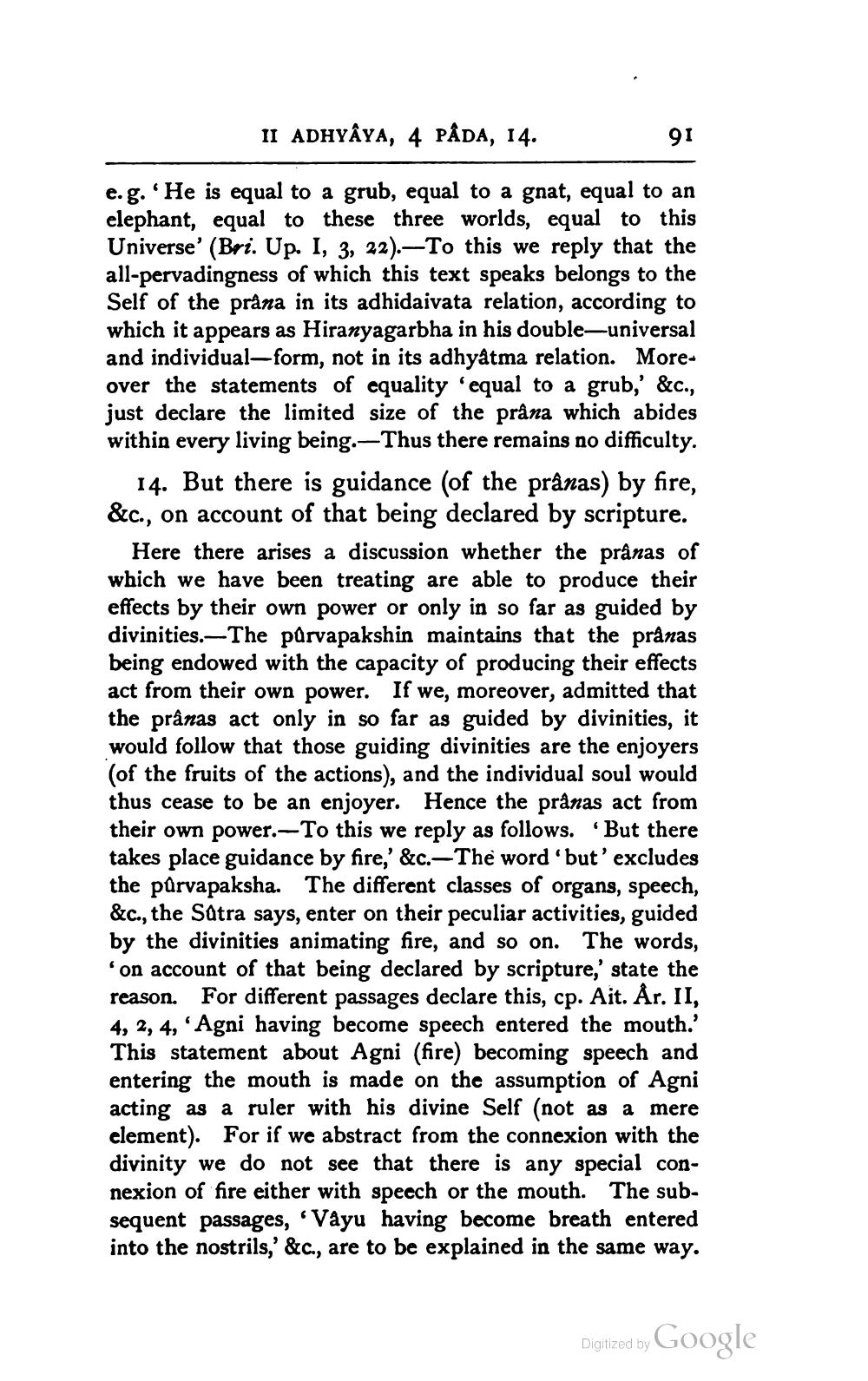________________
II ADHYAYA, 4 PÅDA, 14.
91
e.g. 'He is equal to a grub, equal to a gnat, equal to an elephant, equal to these three worlds, equal to this Universe' (Bri. Up. I, 3, 22).- To this we reply that the all-pervadingness of which this text speaks belongs to the Self of the präna in its adhidaivata relation, according to which it appears as Hiranyagarbha in his double-universal and individual-form, not in its adhyâtma relation. Moreover the statements of equality equal to a grub,' &c., just declare the limited size of the prâna which abides within every living being.–Thus there remains no difficulty.
14. But there is guidance (of the prânas) by fire, &c., on account of that being declared by scripture.
Here there arises a discussion whether the prânas of which we have been treating are able to produce their effects by their own power or only in so far as guided by divinities. The purvapakshin maintains that the pranas being endowed with the capacity of producing their effects act from their own power. If we, moreover, admitted that the prânas act only in so far as guided by divinities, it would follow that those guiding divinities are the enjoyers (of the fruits of the actions), and the individual soul would thus cease to be an enjoyer. Hence the prânas act from their own power.- To this we reply as follows. But there takes place guidance by fire,' &c.—The word 'but' excludes the purvapaksha. The different classes of organs, speech, &c., the Satra says, enter on their peculiar activities, guided by the divinities animating fire, and so on. The words, 'on account of that being declared by scripture,' state the reason. For different passages declare this, cp. Ait. År. II, 4, 2, 4, 'Agni having become speech entered the mouth.' This statement about Agni (fire) becoming speech and entering the mouth is made on the assumption of Agni acting as a ruler with his divine Self (not as a mere element). For if we abstract from the connexion with the divinity we do not see that there is any special connexion of fire either with speech or the mouth. The subsequent passages, Vayu having become breath entered into the nostrils,' &c., are to be explained in the same way.
Digitized by
Digitized by Google




